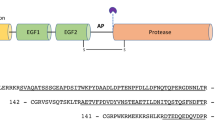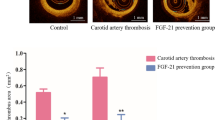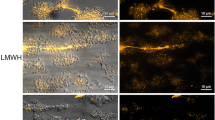Abstract
Angiogenin is a 14 kD protein, initially isolated as a tumour-cell secreted product but subsequently found to be a normal constituent of human plasma. It is a potent inducer of blood vessel formation on the chorioallantoic membrane of the chick embryo. Chemical characterization of the protein reveals a remarkable homology to the pancreatic ribonuclease family and has led to the identification of a unique ribonucleolytic activity for angiogenin. It is a particularly potent inhibitor of in vitro protein synthesis. Treatment with placental ribonuclease inhibitor abolishes the biological and enzymatic activities of angiogenin, an effect with important mechanistic, physiological and pharmacologic implications.
This is a preview of subscription content, access via your institution
Access options
Subscribe to this journal
Receive 24 print issues and online access
$259.00 per year
only $10.79 per issue
Buy this article
- Purchase on Springer Link
- Instant access to full article PDF
Prices may be subject to local taxes which are calculated during checkout
Similar content being viewed by others
Author information
Authors and Affiliations
Additional information
Presented, by invitation, at the BACR/CRC/ICRF Symposium in 'Growth factors', London, December 1987.
Rights and permissions
About this article
Cite this article
Riordan, J., Vallee, B. Human angiogenin, an organogenic protein. Br J Cancer 57, 587–590 (1988). https://doi.org/10.1038/bjc.1988.133
Issue Date:
DOI: https://doi.org/10.1038/bjc.1988.133



